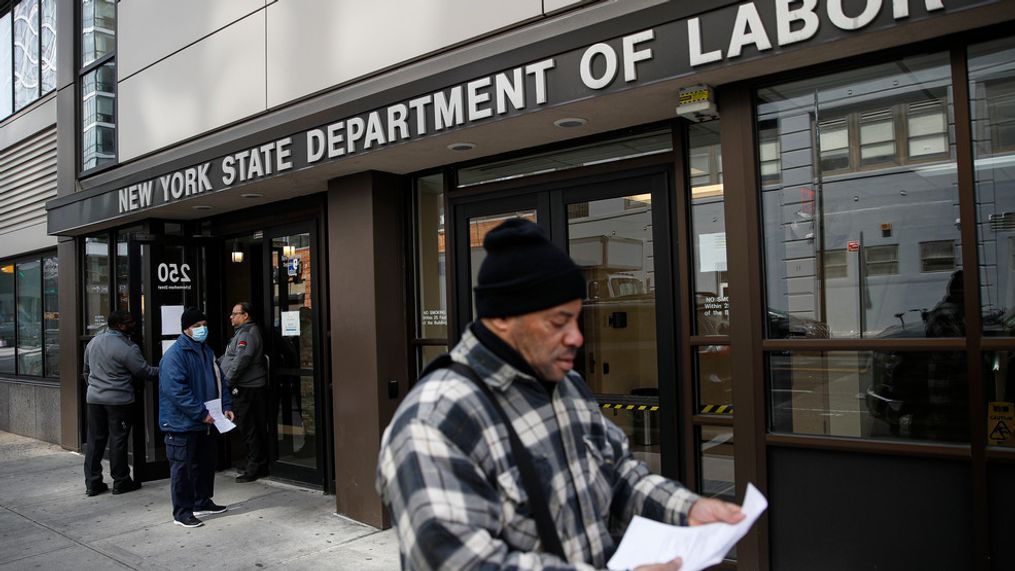Jobless claims climb to 30 million in six weeks

WASHINGTON (SBG) — Another example of the effect the coronavirus has had on America: new jobless numbers— and they're tough to stomach.
Those figures show another 3.8 million people filed for benefits last week. Some think unemployment may be on the verge of reaching 20%, a figure not seen since the Great Depression.
The White House says the money given out for small businesses has saved about 30 million jobs, but with Thursday's new numbers, almost that same amount have lost their jobs since the pandemic hit.
States are suffering too, and governors like Gov. Phil Murphy, D-New Jersey, are asking for federal help.
“In New Jersey alone, it could be $20-30 billion. This is to allow us to keep fighters, teachers, police, EMS cops, teachers on the payroll, serving communities in the time of need,"he said in the Oval Office Thursday while meeting with Trump.
We don’t see it as a bailout. We see this as a partnership, doing the right thing.
But it's a tense debate as to what— if anything— Washington should provide. The president has not committed to giving money on that issue.
“I will say that’s a tough question because you’re talking about the states and whether you call it a bailout or a lot of money," he said.
But House Speaker Nancy Pelosi says that money for COVID-19 assistance is not political. "Everything we had done in the four bills we had passed, all of which had been strongly bipartisan and I'm very proud of that has been about the coronavirus. It is not about one thing or another, it is about the coronavirus," she explained. "And the governors are united. Democrats and Republicans, the mayors are united. Democrats and— everybody is united in saying in order for us to survive, we need to have these resources and they will.
More states are taking baby steps this weekend in reopening, hoping that will spark some cash flow, but others are taking a step back for safety.
“The number one rule of virus economics is the best thing you can do for the economy is to slow the rate of spread of that virus, and I think that means you’ve got to have a big ramp up in testing from where we are now," economist Austan Goolsbee said. "If we follow the models, there have been five or six countries now that have successfully gotten themselves out of lockdown by following that strategy.”
